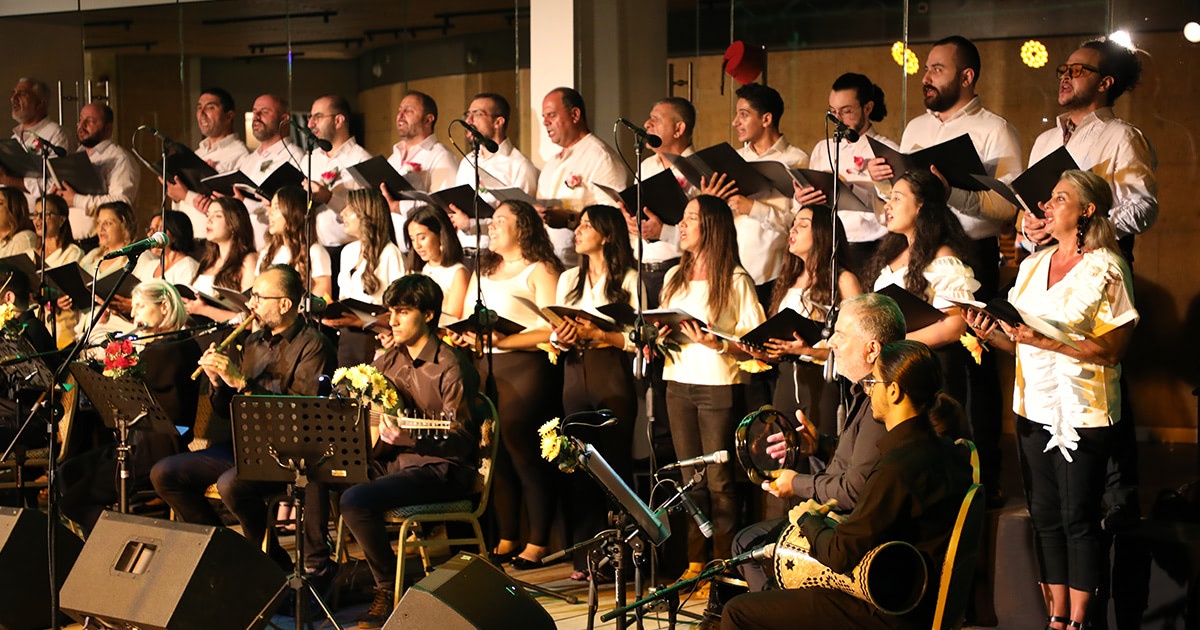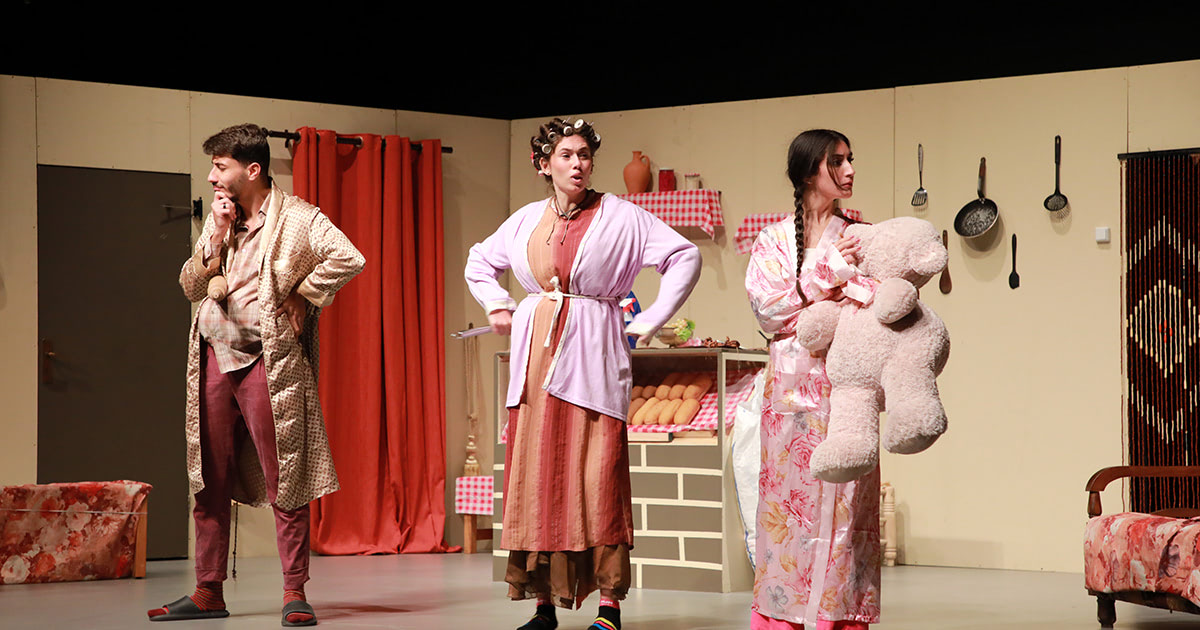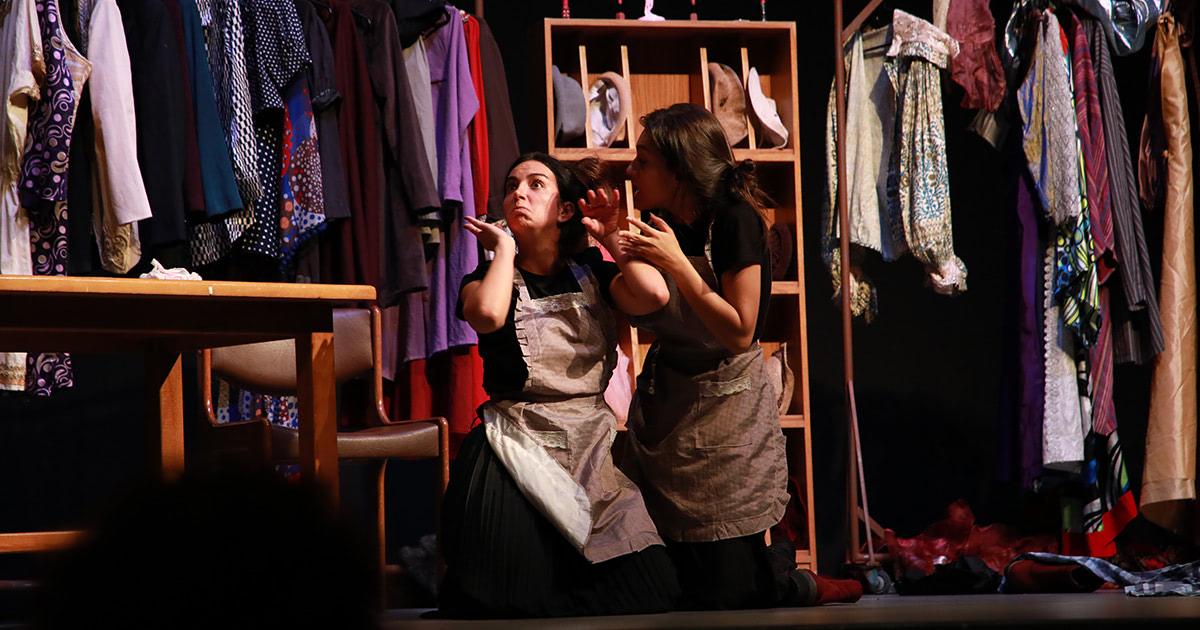LAU’s Theater Festival Returns
The Department of Communication, Arts and Languages restores a vital LAU cultural tradition amid Lebanon’s challenges in hopes of maintaining artistic expression, community engagement and educational growth.
LAU’s University Theater Festival made a triumphant return to the Beirut campus in a much-anticipated event that coincided with the university’s Centennial year. Now in its 19th edition, the festival’s revival marked the restoration of a cultural tradition that has attracted theater enthusiasts and members of the theatrical arts community from around the world for nearly two decades.
Led by Assistant Professor of Practice Lina Khoury in the School of Arts and Sciences’ Department of Communication, Arts and Languages, the festival included 10 plays addressing a range of social issues and cultural norms, from economic hardships and political instability to sexual abuse and gender discrimination.
In addition to three creative workshops by experts on specific aspects of theater production, the festival comprised four musical performances inspired by Lebanon’s cultural heritage.
The festival opened with a concert directed by Assistant Professor of Practice Michele El-Chemaly. With a wide array of genres and themes, the department aimed to revitalize the theater scene at LAU and provide a platform for artistic expression and community building.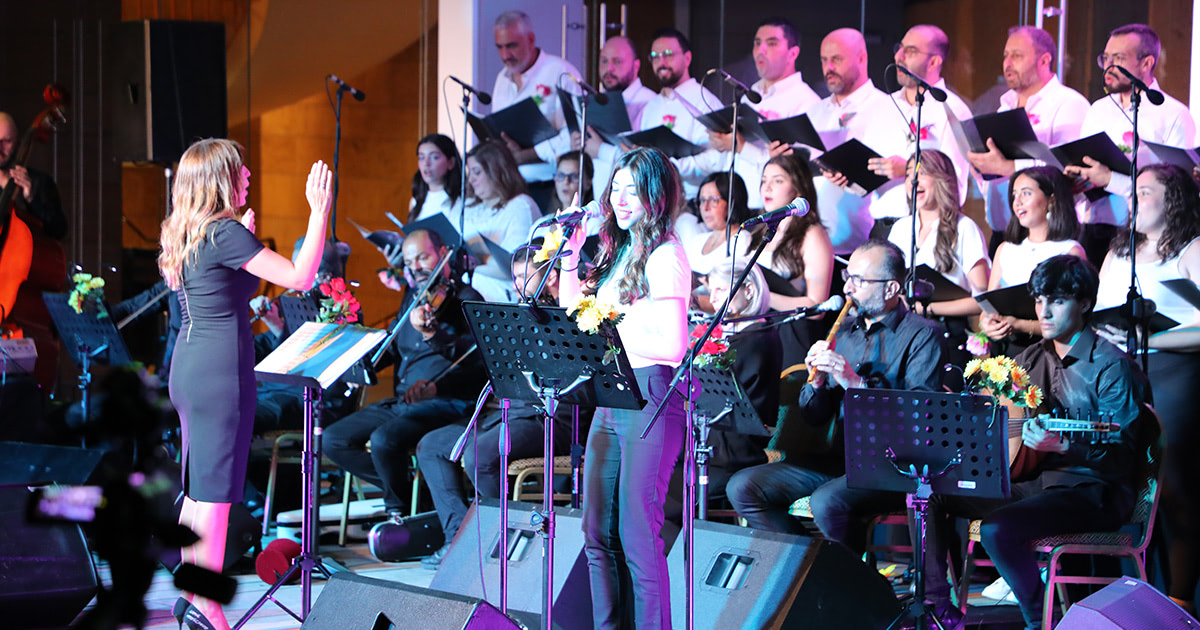
In her opening statement, Dr. Khoury noted how “even in times of difficulty nowadays, the department remains steadfast in its dedication to incentivize students to share their stories of survival, resilience and, most importantly, hope,” she said.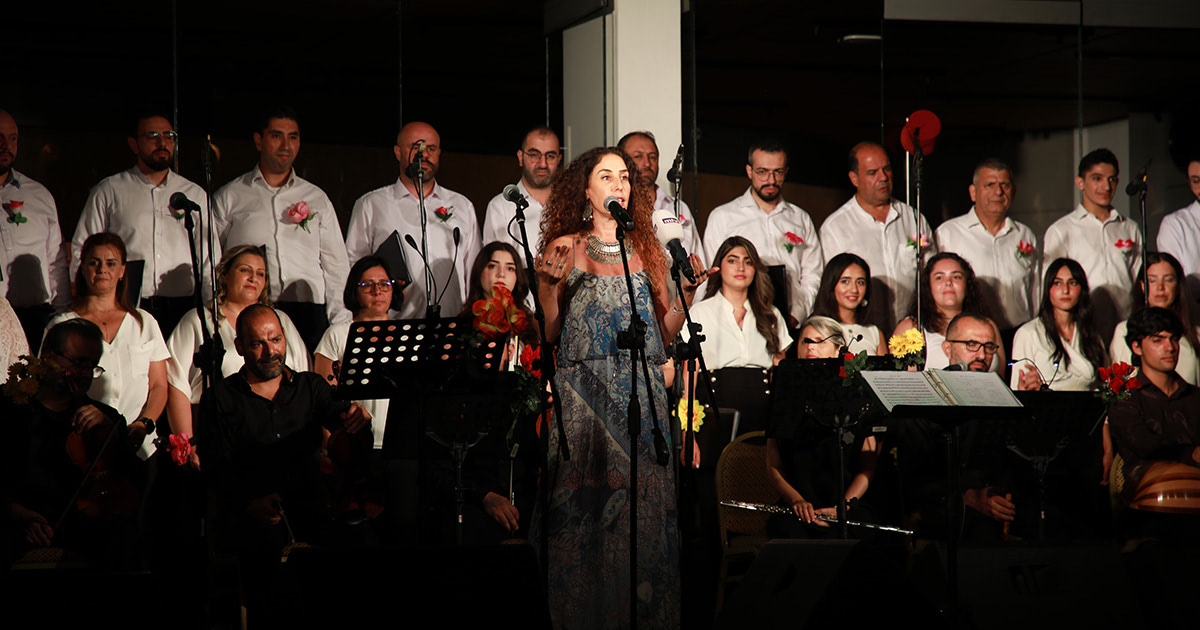
Directed by Performing Arts students from various universities in Lebanon, including the Lebanese University (LU), Beirut Arab University (BAU), Holy Spirit University of Kaslik (USEK), and LAU, the plays were performed in the Gulbenkian Theater and Irwin Hall Auditorium as well as outdoor spaces on campus.
They provided valuable learning experiences for students who took on diverse roles and showcased their talents while networking with professionals and exploring art beyond the university.
In Mashaaer Mokayada—his adaptation of Jean Cocteau’s The Human Voice—LAU Performing Arts graduate Mahmoud Chamseddine (BA ’24) highlighted the emotional struggles men often encounter in toxic relationships and sought to challenge stereotypes about masculinity by showing that men can address their emotions without compromising their masculinity.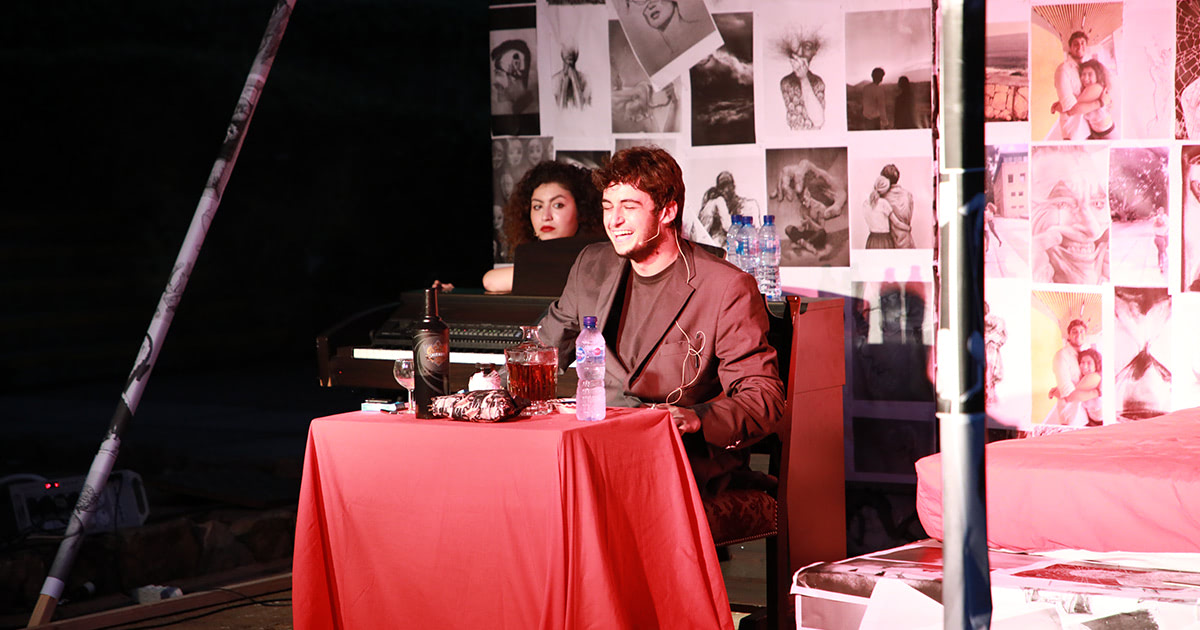
“My message is that everyone, regardless of gender, has emotions that deserve acknowledgment and expression,” he said. “What better place to express that than at a festival as historically vibrant as this?”
Following the plays each evening were musical performances at the Safadi Fine Arts Building, featuring a collection of musical theater scenes, national and international songs, and traditional folklore from the works of the Rahbani brothers, including a production by the LAU Music Club and violinist Ahmad Chahine.
The culturally rich recitals served as an educational extension of classroom learning, particularly for students studying music, theater and cultural studies.
Marc Abdallah, a second-year Performing Arts student at LAU, said that organizing the performances gave him hands-on experience in stage management and production logistics.
“This exposure also allowed me to establish valuable connections that can open doors to future career opportunities with industry professionals and fellow artists,” he added.
The afternoons were reserved for specialized workshops led by professionals in theater production. Each workshop—open to students, alumni and community members interested in theater production—offered its own immersive and educational experience.
In “Crafting Scenography,” scenographer Hasan Sadek covered the art and aspects of visual storytelling, and examined how elements such as set design, lighting and props contribute to shaping the audience’s perception and deepening the narrative of the play.
Chairperson of the Sakakini Cultural Center in Ramallah Raeda Taha guided participants through the process of integrating cultural and historical elements into theatrical performances in “Al Riwaya wal Thakera Al Filastinia fil Masrah,” by emphasizing the importance of authenticity and cultural sensitivity in fostering a deeper connection with the audience.
In “Vocal Techniques for Actors,” LU Professor Khaled El Abdallah focused on exercises designed to hone vocal skills such as improving breath control, articulation and resonance for more powerful delivery and nuanced performances on stage.
The creative workshops are one of the festival’s best assets, said Dr. Khoury, for they delve into numerous aspects of theater production and foster a sense of collaboration among students as they can see and support each other’s work.
“This ongoing engagement helps to build a more cohesive and dynamic theater community within the university, and creates a supportive environment for artistic growth,” she added.
The festival has been an essential component of LAU’s mission to serve as a beacon for the fine arts, and Dr. Khoury hopes that in these challenging times, it will inspire resilience among students to overcome obstacles and pursue their passions.
Department Chairperson Dany Badran agrees. “Lebanon has always been a center of art in the Arab world, for artistic creativity, artistic innovation and most importantly, artistic freedom,” he said. “By the same token, LAU has always been the academic center of art in Lebanon.”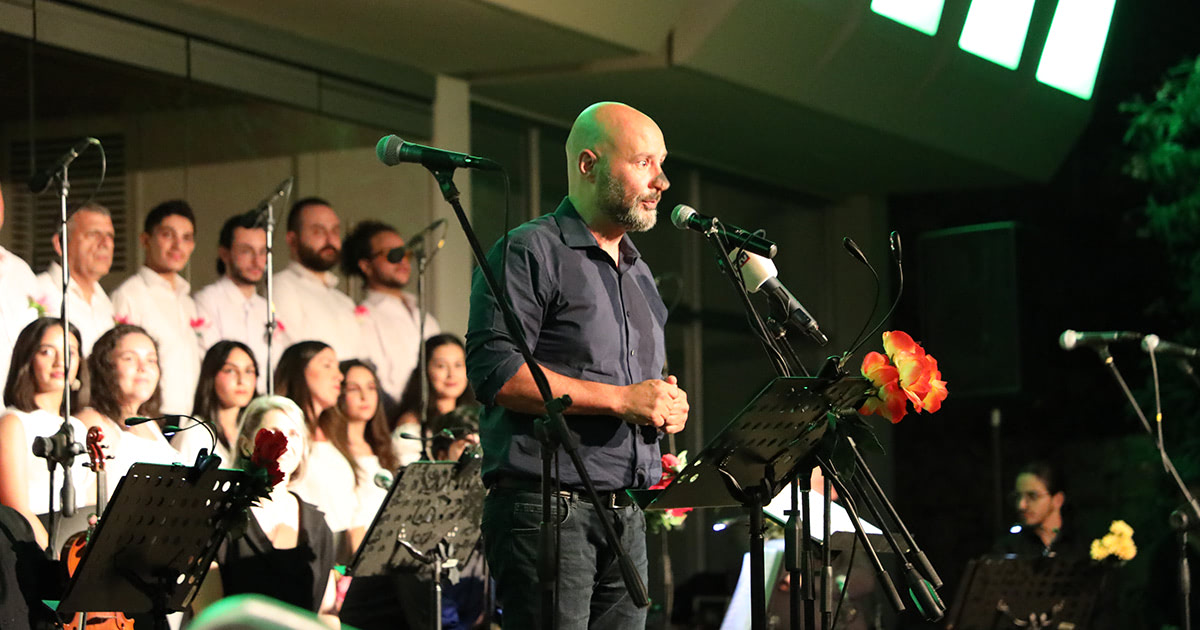
The festival, he added, marked the department’s commitment to preserve a cornerstone in LAU’s cultural calendar. This success, he noted, is made possible through the dedication of the university’s faculty, who diligently work to bring the festival to fruition, and the enthusiastic participation of its students, who sustain and energize the event each year.
